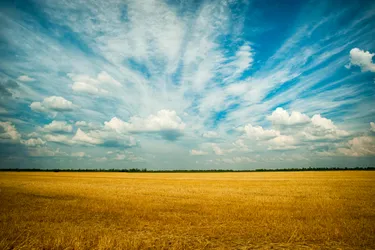The Thinker: July 2025

NAIDOC Week 2025
Happy NAIDOC Week to all our Aboriginal and Torres Strait Islander friends, colleagues, and their communities! Scrolling through the National NAIDOC Awards we are delighted to see that Torres Strait Islander woman Christine Anu won the Creative Talent Award category.
Ms Anu been introducing her listeners’ minds and hearts to Torres Strait Islander culture and imagery since the mid-1990s. Her artistic talents are not however limited to the creation of music, as demonstrated by her starring roles with Bangarra, the hugely successful Moulin Rouge! and the film The Matrix Reloaded. Most recently, she has impressed critics as Hermes in the musical Hadestown.
We honour and thank Ms Anu for her joyous sharing of Torres Strait Islander culture, as well as her longstanding contributions to the Australian arts scene more broadly.
Resilience isn’t a solo act: it’s connection, safety, and support
Recently we’ve been doing some work on practitioner self-care, resilience and wellbeing. We found a lovely analogy to help us discern between resilience and wellbeing:
Think of wellbeing as the climate (your overall conditions), and resilience as your weather gear (how you handle the storms).
Thinking about the workplace, its obvious to us that both the overall “climate” of wellbeing and the individual employees’ capacity to be resilient, are influenced by more than just the practitioner’s individual traits, personality and attitude. One study we looked at identified the benefits of taking a proactive approach to employee wellbeing: ”…‘protective’ factors that support resilience have a bigger impact than negative factors that undermine it; so enhancing the protective factors is likely to be more effective than reducing the risk factors”. Importantly, they reflect that a sole focus on “self care” ignores the other critical components that contribute to resilience and wellbeing.
These elements that foster employee resilience are common across the literature, and provide a useful framework for leaders seeking to increase employee retention, reduce employee absenteeism, and engage in staff support practices beyond targets, KPI’s and annual performance reviews. They also provide a useful framework for practitioners seeking to understand the possible source(s) of their stress and attend to the things over which they have some influence.
As social workers, we take an ecological, systemic and structural view on things, and this quote really resonated with us when thinking about what enables self-care practices, and what barriers exist that might undermine the individuals’ capacity to build their resilience:
“Focalised approaches to individual self-care practices ignore attention to the context and perpetuate privilege to those who can afford the time, space, and resources to access self-care practices while sustaining the other parts of daily life. The framing of self-care as an individual and personal responsibility neglects the structural conditions that drive compassion fatigue, job turnover, and burnout” (Kaapu et al 2024).
In recognising these broader systemic influences, we can move beyond narrow notions of self care and instead foster environments where wellbeing and resilience are shared responsibilities. This shift invites both leaders and practitioners to attend not only to individual needs, but also to the conditions that sustain or erode our collective capacity to thrive.
References
- Gifford, J. and Young, J. (2021) Employee resilience: an evidence review. Summary report. London: Chartered Institute of Personnel and Development\
- Kristi Kaapu, Catherine E. McKinley, Lauren Barks “Is Self-Care Sustainable Without Structural Support? A Systematic Review of Self-Care Interventions” Res Soc Work Pract. 2024 November ; 34(8)
Our impact in practice: ThinkWell supporting graduate wellbeing
We are very pleased to be delivering a second topic in the DFFH Community and Social Services Graduate Program (the first being Reflective Practice). Sustaining wellbeing: proactive approaches for practitioners recognises the specific impacts on practitioners of working with individuals, families and communities who experience trauma, significant adversity and marginalisation.
The content focuses on practitioner self-awareness, ability to identify how the work can and might impact them, and strategies they can implement both personally and in the workplace to increase their resilience and build individual and collective wellbeing.
Find out more about the Graduate Program here.
The brain building bit
Workforce Wellbeing Guide
This fabulous guide (developed for Aboriginal Community Controlled Health Services in the Kimberley) is highly relevant to all practitioners working in roles where attention needs to be paid to their own wellbeing so that they can best support their service users. It has many practical tools and resources to promote self- and team-reflection. Highly recommend!
New book on Workplace Wellbeing
This is a new release from the Harvard Business Review Press, authored by Jan-Emmanuel De Neve and George Ward, Why Workplace Wellbeing Matters: the science behind employee happiness and organisational performance. It’s research-based, drawing on multiple studies with extensive data, and pulls this data into clear themes that support professionals, particularly leaders, to consider micro- and macro- influences on individual and organisational wellbeing.